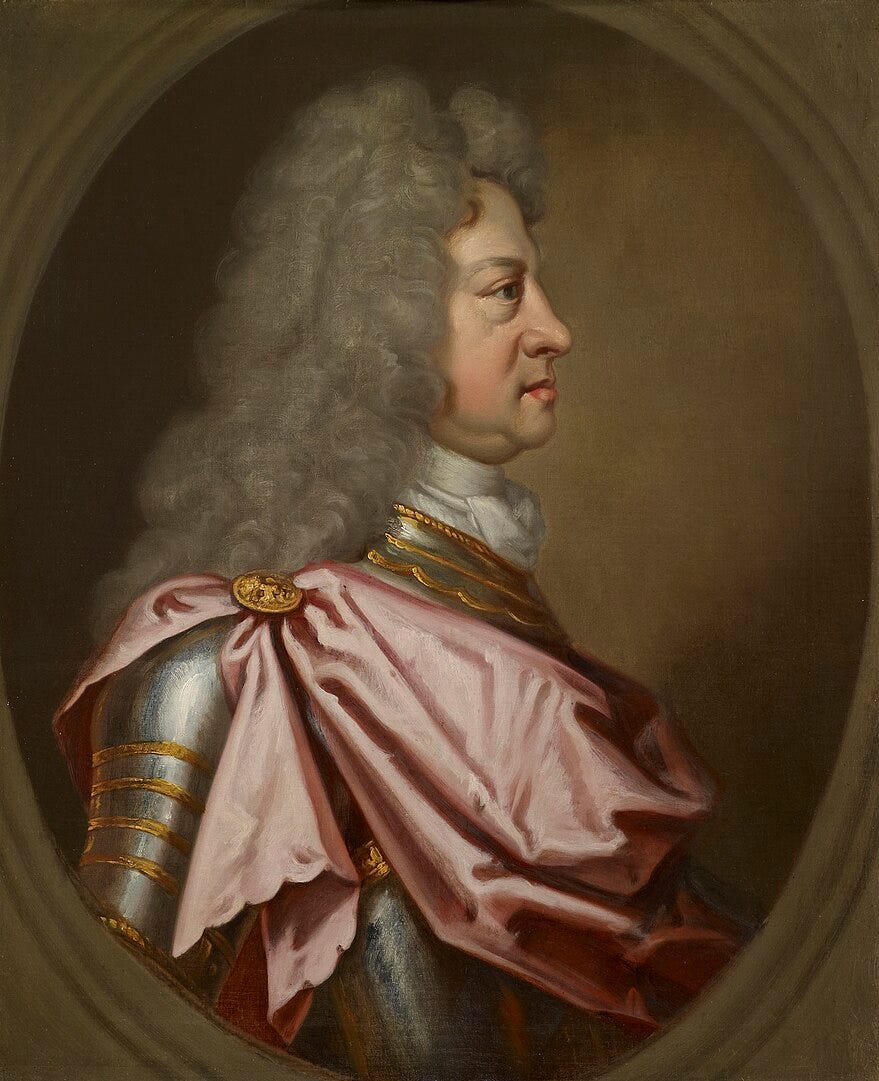The forgotten princess, Princess Charlotte - the hope of the Hanoverian Dynasty
England goes into mourning following the death of Princess Charlotte, 6th November 1817
Charlotte, Princess of Wales - “England’s Rose” 7 Jan 1796 - 6 Nov 1817
The German royal family had done little to ingratiate themselves to their subjects since Georg, Elector of Hanover, had assumed the throne of Great Britain on the death of his cousin, Queen Anne. Anne’s death ended the Stuart line which had been in existence since 1603 in England and Ireland, and 1371 in Scotland! Religious division solemnised by the 1701 Act of Settlement barred any Catholic from taking the throne, meaning that closer relations including Anne’s own half-brother James, the son of James II of England /VII of Scotland, were passed over in favour of her closest Protestant relative, all other factors ignored. The Act of Settlement came the year after William II, and the only surviving child of Queen Anne both died. The Act now named the new line of succession to ensure a Protestant successor for Anne. Sophia of Hanover, a cousin of Anne’s and the granddaughter of James I of England/VI of Scotland would be Queen after Anne, and following her, her son, Georg. In the event, Sophia predeceased Anne by only two months and Georg became King of Great Britain and Ireland, as well as Elector of Hanover.

On his accession his name was anglicised to George but King George I didn’t speak much English and relied heavily on British advisors and Ministers. The king’s inability to take direct, or any significant role in the governance of the country, eased the way for a significant progression toward constitutional monarchy, where Parliament took more control over the running of the country.
With all the privilege of being the ruling family, but with less responsibility than at any time in the history of the monarchy, the ‘Hanoverian’ family displayed arrogance and contempt towards their subjects and the country. They spent money on outrageous and morally questionable lifestyles and their behaviour did not go unnoticed with the royal family often being satirised in pamphlets and the popular press. There was one member of the royal family however, who was an exception, Princess Charlotte.
Princess Charlotte was born on 7th January 1796 and was the daughter of George, Prince of Wales and Prince Regent (later George IV) and his wife Caroline of Brunswick, who was also his first cousin. Despite George III and his wife, Queen Charlotte, having 15 children, Charlotte was the only one of her generation in line to the throne. Less than cordial relations between her mother and father meant that there was no chance of siblings to join her in the Royal nursery, her parents deciding to live apart after Charlotte’s birth. Baseless accusations of adultery against her mother resulted in Caroline having restricted access to her only child, despite a formal investigation finding no foundation for the rumours. Her mother was also not allowed any input into her daughter’s upbringing or education. Sadly for Charlotte this did not mean that her father was going to be any more hands on, he was distant and didn’t even have his daughter living in the same house, fearing it would ‘cramp his style’. Her care was overseen by a plethora of governesses and sub-governesses, appointed by her father sometimes with her grandmother’s input.
Princess Charlotte was the antithesis of the rest of her family. She was well loved by the people, who dubbed her their ‘English Rose.’ Although sweet in nature, she was not academically inclined and proved a frustration to her tutors, but was very capable at art and music and showed interest in politics. The wider public had no idea, maybe no care, for whether the Princess, the only legitimate grandchild of the current king, George III, and second in line line to the throne, could read Latin, she was the personification of a hope for the future.
The choice of husband for Charlotte looked like it may be another cause of turmoil in the young Princess’s life when, at the age of 15, she fell for a dashing (of course he was) Army Officer called Captain Charles Hesse. They exchanged many letters before his posting abroad ended their relationship, such as it was. The existence of the letters, Charlotte realised, were a threat to her reputation, one which must be beyond reproach if she were to make an advantageous foreign match. She confessed to her father, at the same time revealing her mother’s part in facilitating the dalliance. She seemed to have been somewhat of a romantic and was linked with other men including her own uncle, Prince William Frederick of Gloucester and an unidentified man thought to be either Prince Augustus or Frederick of Prussia.
Charlotte’s father, George Prince of Wales, had a suitor in mind for her, William of Orange and the Princess was pressurised into accepting his proposal. However, confusion about where Charlotte would be expected to live poured cold water on the whole idea for her but when her father didn’t change his mind she took off to her mother’s house. Public sympathy for her plight was high, and she broke off the engagement in June 1814.
The Princess chose her next suitor herself.
This blog is also available in my Patreon, which you can join for blogs, book club, behind the scenes content and even more exclusive content (£5/month) - click here.
Keep reading with a 7-day free trial
Subscribe to British History to keep reading this post and get 7 days of free access to the full post archives.






